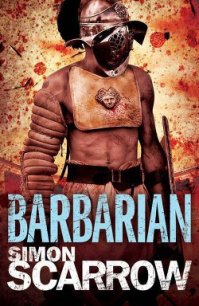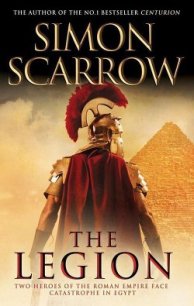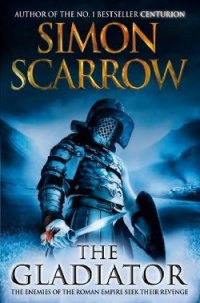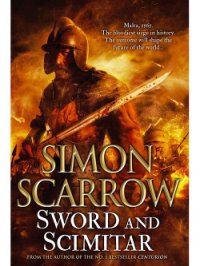The Fields of Death - Scarrow Simon (читаем книги онлайн бесплатно txt) 📗
‘Stop,’ Napoleon ordered Ney’s aide. ‘I command you.’
The aide paused uncertainly, then bowed his head and handed back the reins. At once Napoleon wheeled the horse about to watch the cream of his army cross the floor of the valley, slowly disappearing into the dense cloud of powder smoke that had gathered as a result of the French batteries’ bombardment of the ridge throughout the day. Ney halted the formation and ordered them to form square, then the Guard continued their advance, five battalions to the front, and four behind, in reserve.
Soult had taken a horse and now rode up to the Emperor. He pointed towards the line of the ridge as it turned to the north-east of the battlefield. The dark shape of a distant column was approaching Wellington’s left flank, and clearly visible to the men of d’Erlon’s corps.
‘Sire, those are Prussians.’
‘Quiet, Soult!’ Napoleon snapped. Glancing round, he saw that none of the soldiers seemed to have overheard. He turned back to his chief of staff. ‘I know what they are. But you will ride down the line and tell our men that it is Grouchy, come to save us.’
‘Sire?’
‘Our fate hangs by a thread, Soult. Our men need to believe they can win, or we are finished. Now go, tell them!’
Soult nodded as he grasped the necessity of the lie. He took a deep breath and spurred his horse along the front ranks of d’Erlon’s corps. Snatching off his hat he waved it from side to side and then thrust it towards the distant column.
‘Men! See there! It is Marshal Grouchy! Grouchy is coming! Wellington is beaten!’
His words were seized on eagerly and the men cheered wildly, and then began their own advance to the right of La Haye Sainte. The roar of their voices carried across the valley to where the Imperial Guard continued their relentless approach to the ridge. Marshal Ney paused at the rear of the column. He glanced back towards Napoleon, waved his hand, and then turned to the front as he drew his sword and urged his horse forward, disappearing into the smoke.
The allied centre, 7.30 p.m.
‘Heads up!’ a soldier from Halkett’s brigade shouted. ‘Here they come again!’
Arthur had just led two battalions of Brunswick infantry forward to the ridge. The inexperienced young men looked ahead nervously as they heard the shout and guessed its import. Even though the French guns had continued to fire on the ridge, there had been no attacks for nearly an hour and Arthur had used the opportunity to pull in his flanks and concentrate what was left of his army astride the road to Brussels. Halting the Brunswickers, he rode ahead with Somerset and Uxbridge as far as the hedge on the crest and looked down the slope. The sound of drums drifted through the smoke.
‘Infantry again,’ said Uxbridge.
‘Then we shall send them on their way.’ Somerset forced a smile. ‘The same as we did before.’
They waited a moment longer and then saw the heads of what appeared at first to be five large columns of infantry. There was no mistaking the uniform of the men approaching the ridge.
‘By God, Boney’s sending in the Guard,’ Uxbridge muttered. ‘In squares. Well, they need not have bothered. I’ve too few men left to mount a decent charge.’
Arthur turned to Somerset. ‘I want every gun turned on them. They must not get over the ridge. Ride the line and tell every battery commander.’
‘Yes, your grace.’
As Somerset galloped away Arthur took a deep breath. ‘Here it is, Uxbridge, the deciding moment.’
He looked along the ridge and saw the smoke-grimed faces of his weary men. The artillery, who had been exposed to enemy fire longer than any other arm, had suffered badly. All that remained of some batteries were the smashed fragments of their weapons, while others had lost guns, men and horses. Those still on their feet had been serving the weapons for eight hours and moved with the leaden stagger of men on the verge of collapse. As Somerset went along the ridge warning of the approach of the enemy, those units still in square hurriedly wheeled their sides out to form a line facing the ridge. The surviving guns blasted away, shooting canister into the faces of the French squares. Napoleon’s veterans instantly closed up the gaps, dressed their ranks, and continued forward, as if they were executing a parade-ground manoeuvre. With a rumble, some batteries of enemy horse guns trundled up between the squares and halted to unlimber. The crews had their weapons trained on the ridge and ready to fire in less than a minute.
‘Never seen guns moved so well,’ Arthur marvelled.
They opened fire, targeting the English guns with canister and cutting down their crews. For as long as they could Arthur’s gunners poured their fire into the advancing imperial guardsmen. The two battalions on the right of the French line were marginally ahead of the others, and as they came up to the crest of the ridge Arthur and Uxbridge cantered over to the safety of Halkett’s brigade. The infantry could not see the Frenchmen yet, but the sound of the drums carried to them clearly and they tightened their grip on their muskets and stared grimly ahead.
The tops of the bearskins appeared first, and above them the gold of an eagle atop its standard.
‘Make ready to fire!’ Halkett bellowed and his men advanced their weapons and pulled the hammers back to half-cock.
The front ranks of the first two French squares halted, raised their muskets and quickly fired a volley. Bullets zipped past Arthur and Uxbridge and a dozen or so of Halkett’s men fell.
‘Take aim!’ Halkett held his sword aloft, and then swept it down as he bellowed, ‘Fire!’
From his saddle Arthur could see that the British volley was far more effective than the enemy’s, and the front rank of the two squares seemed to collapse en masse. He turned to Halkett and called out, ‘Charge your brigade! Now!’
Halkett nodded and repeated the order in a clear bellow. His men let out a roar as they advanced their bayonets and plunged through the smoke. Ahead of them the guardsmen stood their ground for an instant, uncertain and afraid, and then backed away.
‘They’re running! After ’em, lads!’ a sergeant called out.
A handful of the French veterans stood their ground, and were quickly cut down by Halkett’s infantry. The redcoats plunged down the slope, the guardsmen fleeing before them. Arthur touched his spurs into Copenhagen’s flanks and galloped along the line to Maitland’s brigade, lying down on the reverse slope. The next two squares of the Imperial Guard were just appearing over the crest and Arthur cupped a hand to his mouth. ‘Now, Maitland! Now’s your time!’
Maitland nodded and gave the order. ‘The brigade will rise!’
In a few seconds some fourteen hundred men, in four ranks, appeared in front of the French guardsmen, who only a moment earlier had thought nothing stood between them and victory. The surprise and shock on their faces was unmistakable as they stumbled to a halt.
‘Take aim!’ Maitland ordered. ‘Fire!’
Arthur saw the deadly impact of the massed volley, and the charge of Maitland’s men did for these squares exactly what Halkett’s had for the first two. The Imperial Guard, the finest body of soldiers in Europe, broke and fled back down the slope. Maitland spurred his horse after his men and followed them a short distance down the slope, until he saw the last square to his right. Turning to the nearest companies, still bunched together as they headed down the slope, he halted them and formed a line facing the side of the last French square in front of the allied line. The redcoats quickly reloaded their weapons and took aim. Ahead, and to the other side of the square, more allied soldiers did the same. There was a moment’s stillness, then the first of the volleys crashed out. Others followed, and the French soldiers were felled in waves. The survivors stared in terror at the bodies around them and then turned and ran.




